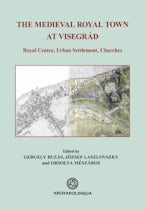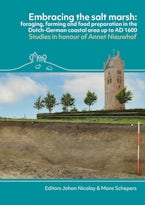
The Medieval Royal Town at Visegrád
Royal Centre, Urban Settlement, Churches
Imprint: Archaeolingua
272 Pages
- Hardcover
- 9789639911581
- September 2014
- In Stock
$54.00
BuyDescription
Visegrád is the most enigmatic town in medieval Hungary. It was the site of the royal residence (palace and castles) of the Angevin dynasty and for most of the fourteenth century it was the capital of the kingdom. This flourishing period and the co-existence of a royal residence with the town was the result of its central position in the Kingdom of Hungary. It is challenging to explain Visegrád’s rise and decline between the early fourteenth century and the Ottoman occupation three hundred years later. Why did Visegrád became a royal seat, how did it function as such, and what happened to the town after the moving of the royal court to Buda? These questions are raised in this volume with an analysis of the urban development factors, which include the interpretation of the location, topography, population, churches, public and private buildings. This first English language monograph concerned with the urban settlement of medieval Visegrád consists of an analytical part, which explains the process of administrative topographical development. It also publishes English summaries and full-text Latin editions of the medieval documents that contain relevant information on Visegrád’s topography and ecclesiastic institutions. The complex analysis of the medieval town, thus, is based on the interpretation of charter evidence and analysis of the archaeological investigations carried out in the area of the settlement of Visegrád and in connection to the excavations of the royal palace and castle. These results are contextualized in the framework of the development of towns in medieval Hungary, and in the European research of residences and urban settlements. With the previous volume of the same series on the royal palace, this monograph offers the most complex picture on the interaction of royal residence and urban settlement in medieval Visegrád.










